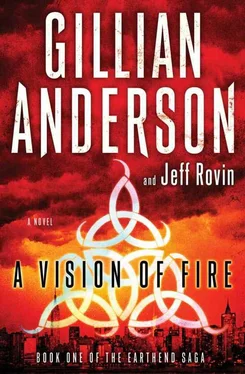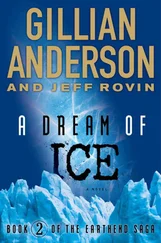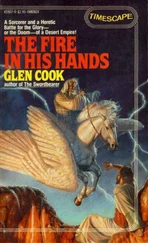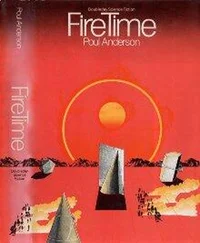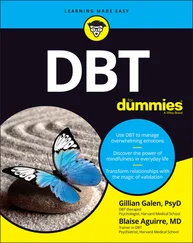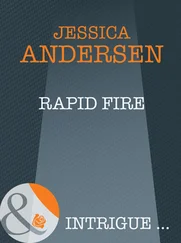There was another scream and suddenly Caitlin was on the floor. Not a stone floor but a hospital floor.
“Dr. O’Hara!”
Caitlin opened her eyes to see Maryam’s face hovering over her. Her head felt exceedingly light, her hands excessively warm, her brain extraordinarily confused. For a moment it was as if she had forgotten how to speak.
“You screamed,” Maryam said.
“I—no. No.”
There was no point in even attempting to explain. She wasn’t sure she could explain, since she didn’t entirely understand it herself. Caitlin pulled away from Maryam and shoved herself up from the floor, grabbing the railing of Atash’s bed. She was reeling.
“It was Atash,” Caitlin gasped.
“What are you saying?”
Caitlin fell silent. As with the snake in Haiti, she had been through something Atash was experiencing. She looked down at the young man. His fixed, red-rimmed eyes were staring at a corner of the ceiling. A tear was sliding down his cheek, and a line of blood trailed from his mouth down over his chin. She reached for his throat with her right hand, searching for a pulse…
“You’d better call for the doctor,” Caitlin said sadly.
“What is it?”
“He’s dead,” she replied.
Caitlin sat in reception again, a spartan room with religious symbols on the walls. Maryam was on her cell phone, sitting under a brass scimitar suspended point-up. An overhead light effected a glow.
Her hands and forearms heavy, Caitlin opened her tablet but stared at the dark screen. She knew she should Skype her father or Barbara, even Ben, but what she had witnessed—no, what she had experienced —had knocked her numb.
A part of her didn’t want to stop the numbness. Atash’s pain had joined Maanik and Gaelle’s with a ferocious intensity and she felt guilty for not having come here days earlier when she might have been able to… do something. Maybe she could have worked with him in stages, used hypnosis, something to mediate between him and the vision. Now he was dead, and he had died in torment.
Then fear suffused the numbness. Did his death in the vision cause his death in body? If so, Maanik and Gaelle were in mortal danger. She began to shake.
A hand dropped on her shoulder but she did not respond. Then the hand turned her chin so that she was looking into Maryam’s hazel eyes. They were softer than she had seen them before now.
“Dr. O’Hara, you must focus.”
Caitlin nodded blankly.
“Doctor, I am not a woman who selects what she sees. I see everything. When your hand was on the young man I saw your head moving. Not like this.” She nodded her head back and forth, then gestured at Caitlin’s Hermès scarf. “Your head moved as if, beneath the scarf, your hair was alive.”
Her words to Ben—about Maanik’s hair justifying this trip—came back to her. So did a little bit of life. “Go on,” said Caitlin.
Maryam stared at her. “You do not seem surprised.”
“Strangely, no,” she admitted. “Please, what else did you see?”
Maryam regarded her skeptically.
“Please,” Caitlin pleaded. “It’s all helpful information.”
Maryam sat beside her. “When you fell backward, this came forward.” The young woman touched a strand of hair that had loosened from Caitlin’s scarf and was framing her face. “I watched it move as if a wind had caught it, but the windows were closed, there was no fan, no breeze. I am not an imaginative woman, doctor. I saw this.”
“I believe you,” Caitlin said. “There are things going on that I do not understand. That’s why I came here.”
“I know this now, so I am going to take you to see someone. We have enough time before your flight tonight.”
Caitlin’s mind cleared slightly. “Is this a polite way of saying that I am under arrest?”
Maryam smiled and discreetly looked around the room. “Doctor, if that were the case you would not have to ask.”
The young woman pressed her fingers on Caitlin’s palm. Caitlin noticed that the back of Maryam’s hand was grayish, very wrinkled, almost blistered in places. It was a hand that, some time ago, had been badly burned.
“I was a girl during the war with Iraq,” she said. “I was once a patient here.”
Caitlin met her gaze and thought of the fortitude it must have taken for this woman to accompany her, whether by order or voluntarily, to return to this place of pain, sadness, and fear. Caitlin squeezed her hand gently. “Go on.”
“There is more you should see while you are here.”
Maryam rose and Caitlin followed her to the waiting sedan.
Forty-five minutes later they pulled up in front of a low, concrete apartment building. Caitlin followed Maryam into one of the apartments and was seated in a living room with sparse furniture and a flowered bedsheet for a curtain. She heard gentle clinks from what must have been the kitchen and became vaguely aware that Maryam was not beside her. Opposite Caitlin on the pale green wall was an elaborate design rising from the floor and flowering in red over the expanse—dots, starbursts, wheels like eyes, flourishing feathers. It was like a mehndi design, an adornment painted in henna on Hindu women’s hands before a wedding.
And jasmine—she was suddenly aware of the strikingly familiar smell of jasmine tea as it wafted up to her. A cup and saucer had been placed on the low table. The aroma loosened the tension that had built behind her eyes, and unexpectedly, tears began flowing down her face.
“A cup of tears,” said a soft male voice beside her after she gasped several long sobs. “In some cultures, there are sacred vessels that permit us to mourn.”
Caitlin wiped her eyes with the palms of her hands and took a deep, shuddering breath.
“Is it always jasmine?” Caitlin asked as she composed herself.
“It is whatever it needs to be,” he answered.
Beside her stood a small Indian man with graying hair, somewhere in his sixties. He had remarkably lopsided ears and a gentleness in his eyes that made him seem instantly friendly.
“I am Vahin,” he said with a smile that warmed and comforted her.
“I’m Caitlin,” she replied. She looked around. “Where is Maryam?”
“She is outside,” he said, taking a seat in a shabby armchair opposite her. “The dear lady and I have very different business in this city but she… crossed lines, shall we say? She thought you and I should speak.”
“I’m grateful to you both. What do you do, Vahin?”
“I am something like a clergyman to the Hindu community.”
“Forgive me, but are you allowed to do that here?”
“We have a small community in and around the city,” he said. “Iran allows us our religious freedom and India allows her resident Shia Muslims to visit Iran. It is a mutually beneficial relationship.”
“If you like living at the stress point between two vastly different cultures,” she said.
“Some of us have that calling.” He smiled mysteriously. “But now, to your situation. Tell me what your tears told the cup. Omit nothing.”
While Vahin sipped his tea Caitlin told him everything, not just about Atash but about Maanik and Gaelle, the Norse and Mongolian connections, Jack London’s reactions, and her own glimpses of impossible visions. Vahin sat quietly throughout, nodding now and then, and occasionally dipping his head to one side.
“So,” said Caitlin upon finishing, “how crazy does that all sound to you?”
“Not at all,” Vahin replied. “You seem to feel that because you cannot rationalize what you have experienced it is therefore irrational. That is not the case. We do not blame words for being insufficient to express new ideas. We simply find better words. Do you know who put forth that idea?”
Читать дальше
